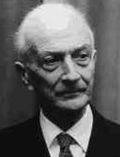Born into a deeply Catholic rural middle-class family originating from Liguria; received a law degree from the University of Sassari in 1913; was an artillery officer during World War I; joined the Italian Popular Party (Partito Popolare Italiano, PPI) at its inception in 1920; entered the University of Perugia as professor of civil law procedure (1920), where he remained until 1925; as a young Catholic activist, he opposed both to fascism and socialism; after the murder of the Socialist parliamentary leader Giacomo Matteotti, he organized an opposition committee; While out of office during the premiership of Mario Scelba in 1954-55, Segni held the chair of procedural law at Rome University; following the consolidation of fascist dictatorship, he had to retire from active political life; continued his academic carrier, but for political reasons he was not approved in 1932 to teach civil legal procedure at the University of Naples; during World War II and the final period of the fascist regime, he resumed political activities with other Sardinian Catholics; became a member of the national council of the new Catholic party, Christian Democracy (Democrazia Cristiana, DC) in 1944; took part in the Socialist Ivanoe Bonomi's government (1944-1945) as undersecretary in the agriculture department; retained this office in the government of Ferruccio Parri (1945) and in the first government of Alcide De Gasperi; was elected to the first Italian republican parliament, and served again as agriculture minister in the De Gasperi governments until 1951; developed a project for agrarian reform which was partially implemented in 1950;
Between July 1951 and January 1954 (except in the government formed only by the DC from July 16 to August 17, 1953), Scgni served as minister of public education. He dedicated most of his energies to the struggle against illiteracy. Segni led his first government, formed by the DC, Social Democrats (PSDI), and Liberals (PLI), from July 6, 1955, until May 19, 1957, with Aldo Moro at the Department of Justice. In these two years Italy was admitted to the United Nations and joined the European Economic Community (EEC, later EC). This government fell because of the EEC agrarian pacts supported by Segni. He rejoined Prime Minister Amintorc Fanfani's DC-PSDI government from July 1, 1958, to February 15, 1959, as assistant prime minister and defense minister. After the fall of Fanfani's government a single-party DC government led by Segni, who also held the office of internal affairs, lasted from February1 15, 1959, until March 25, 1960. After the fall of this second Segni government at the initiative of the PLI, the issue of working with the Socialists arose again. Segni retained the foreign ministry in the third and fourth Fanfani ministries, between July 1960 and June 21,1963. Segni, though distinguishing between the incompatibility of Catholicism and Marxism and the compatibility of Catholicism with a nonauthoritarian socialism, became leader of the opposition to any opening to a center-left policy. But Aldo Moro pushed the DC in the other direction. Segni stressed that Italy should remain faithful to NATO and to the integration of Europe. On this platform Scgni, thanks to the DC and to the right-wing par- |

